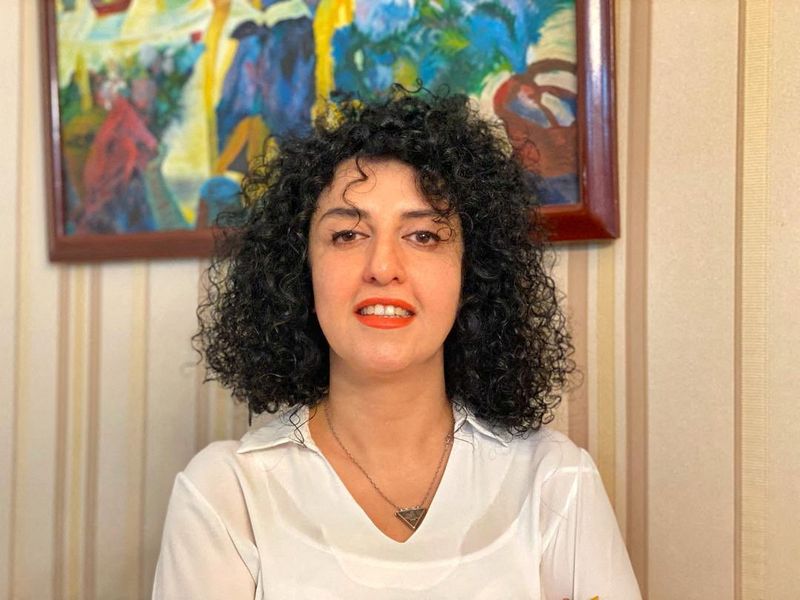Jailed Iranian women’s activist smuggles out letter of thanks for Nobel Peace Prize
2023.11.01 09:22
2/2

© Reuters. FILE PHOTO: Iranian human rights activist and the vice president of the Defenders of Human Rights Center (DHRC) Narges Mohammadi poses in this undated handout picture. Mohammadi family archive photos/Handout via REUTERS/File Photo
2/2
STOCKHOLM (Reuters) – Jailed Iranian women’s rights activist Narges Mohammadi has smuggled out a letter of thanks for her Nobel Peace Prize awarded earlier this month, saying it marked a turning point in “empowering protest and social movements worldwide”.
The imprisoned women’s rights advocate won the 2023 peace prize on Oct. 6 in a rebuke to Tehran’s theocratic leaders and boost for anti-government protesters, while also drawing the Islamic Republic’s swift condemnation.
Mohammadi is serving multiple sentences in Tehran’s Evin Prison amounting to about 12 years imprisonment, one of the many periods she has been detained behind bars, according to the Front Line Defenders rights organisation.
Charges include spreading propaganda against the state.
In the letter smuggled out of prison and read by her daughter Kiana in a video posted on the Nobel website, Mohammadi said the news of her Nobel prize had been met with cries from her cellmates of “Woman, Life, Freedom”, the slogan of the movement of which she is part.
“I am grateful to all of you and urge you to support the people of Iran until the final victory,” she said in the letter read by her daughter, the first official reaction from Mohammadi to her winning the prestigious award.
“Victory is not easy, but it is certain.”
Tehran, which has called the protest movement in Iran a Western-led subversion, accused the Nobel committee of meddling and politicising the issue of human rights in the wake of the decision to award Mohammadi the peace prize.
Mohammadi said she was sending greetings and gratitude to the Nobel Committee on behalf of what she said were 46 women prisoners of conscience and political prisoners held at Evin.
Arrested more than a dozen times in her life, and held three times in Evin since 2012, Mohammadi has been unable to see her husband for 15 years and her children for seven.
“The strength of this movement lies in the agency of Iranian women. We assuredly know what we want far better than what we do not want,” she said in the letter, the text of which was also published on the Nobel website.
“We believe in it, commit to it, and are certain of victory!”








